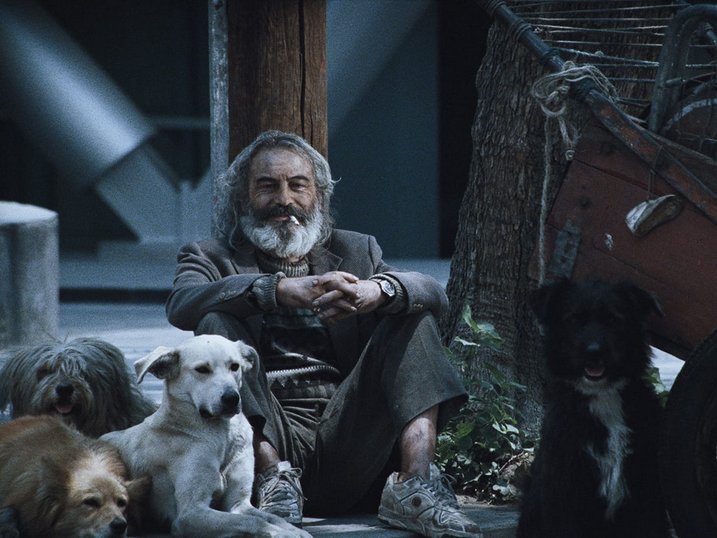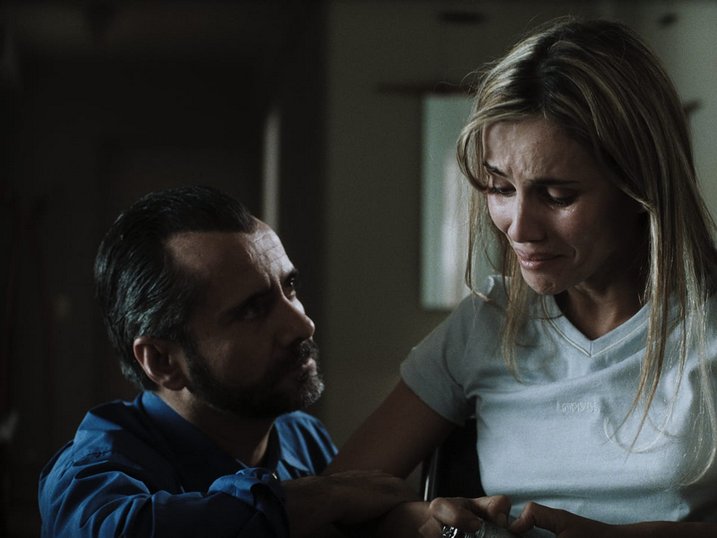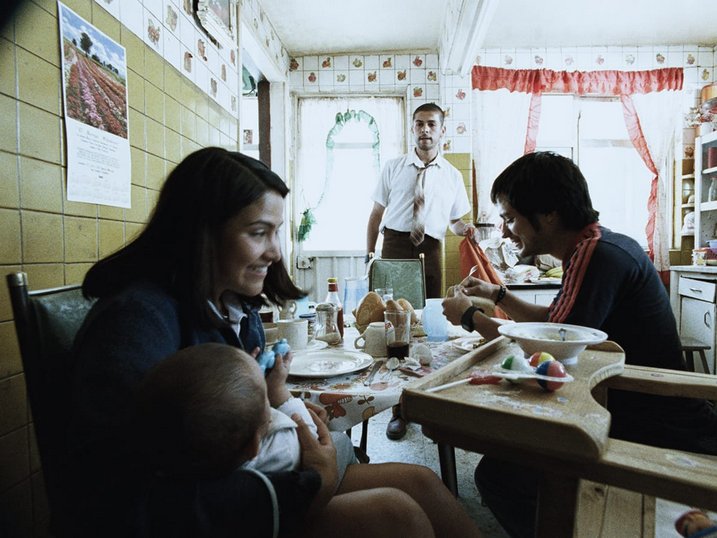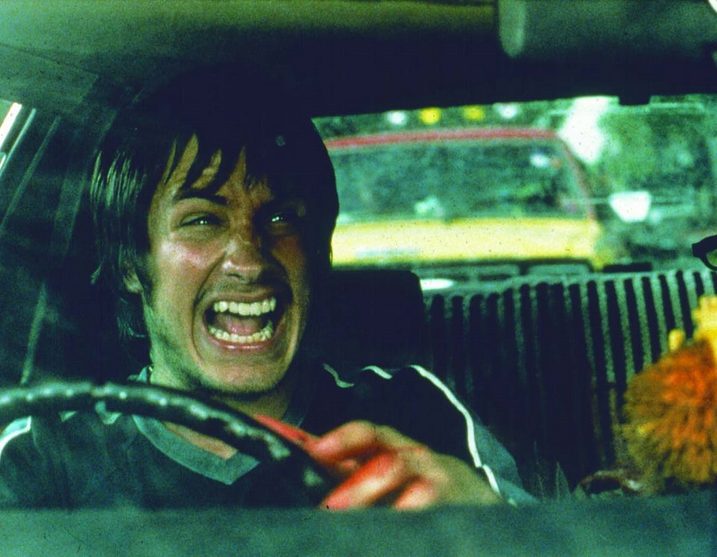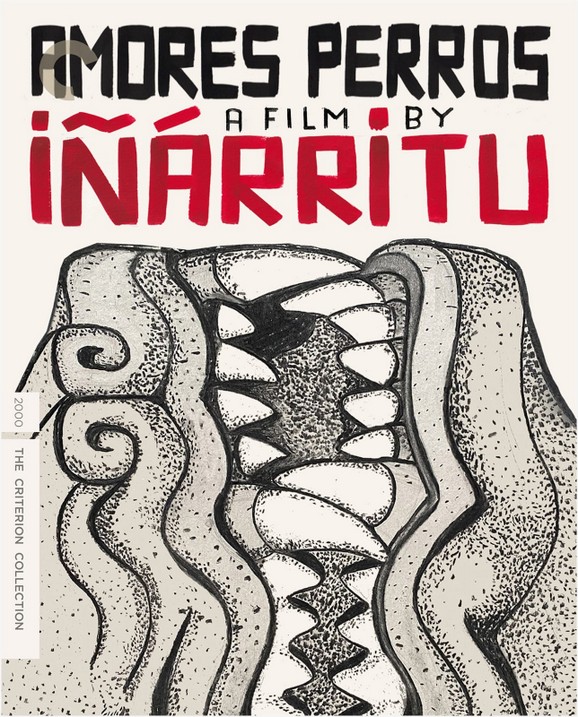Amores Perros – The Criterion Collection (Blu-ray Review)
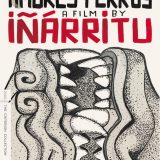 Bursting onto the scene in 2000, after spending years as a radio DJ, Alejandro G. Iñárritu’s first film, Amores Perros, is an exceedingly confident debut, which melded together three stories, all linked by one defining moment, and greater themes connected to life, along with the presence of dogs. The Criterion Collection has done all they could to deliver a release fitting of the power Iñárritu’s crime drama hold, complete with a brand new 4K digital restoration, a new 5.1 lossless soundtrack, and a great collection of extras. Those who own or love dogs will still have a lot of stress to concern themselves with (though none were actually harmed), but Amores Perros is an excellent film given a proper Criterion upgrade.
Bursting onto the scene in 2000, after spending years as a radio DJ, Alejandro G. Iñárritu’s first film, Amores Perros, is an exceedingly confident debut, which melded together three stories, all linked by one defining moment, and greater themes connected to life, along with the presence of dogs. The Criterion Collection has done all they could to deliver a release fitting of the power Iñárritu’s crime drama hold, complete with a brand new 4K digital restoration, a new 5.1 lossless soundtrack, and a great collection of extras. Those who own or love dogs will still have a lot of stress to concern themselves with (though none were actually harmed), but Amores Perros is an excellent film given a proper Criterion upgrade.
Film: 




Set in contemporary Mexico, the film is constructed from three distinct stories linked by a car accident. Using this event as a marker, the viewer can determine where they are on the timeline while also noting other connections and characters who have a way of appearing in different capacities throughout the film. Thanks to kinetic handheld work and a fine handle on these various characters, thanks to writer Guillermo Arriaga, despite lasting 153 minutes, this is an involving story that also knows how to wear the viewer down, given the intensity.
The first story focuses on Octavio (Gael Garcia Bernal, in one of his breakout roles) and his attempts to win over his brother’s wife, Susana (Vanessa Bauche). To free her from an abusive relationship, he decides to use his rottweiler, Cofi, for dog fights. Cofi is a tough dog and wins all his matches easily, making lots of money for Octavio.
It’s a rough watch, even with clever editing that does a lot to imply what’s taking place instead of actually showing anything. This segment’s whole attitude is intense but fits with a style that challenges the viewer to root for Octavio yet feel conflicted over his actions. The crime element also adds a level of intensity, complicating the journey Octavio is on with a wild card aspect regarding the shady and dangerous activities he’s involved himself, his friend, and his dog in.
Valeria (Goya Toledo) is the focus of the second story. She’s a supermodel injured in the car accident, leaving her leg broken. She’s just moved in with Daniel (Alvaro Guerrero), who has left his family for her. They have a dog, Richie, who disappears underneath some floorboards, causing a lot of panic and stress on the two, who can’t get him to come.
There are many arguments and shouting for this segment, which contrasts with the first as far as the relationship dynamic is concerned. The nature of the dog’s disappearance serves as a fitting metaphor for what’s taking place, with a high level of tragedy coming from something that appears to be right in front of them yet cannot be properly released.
The final segment concerns El Chivo (Emilio Echevarria), a vagrant the film has featured at various times, who is actually a professional hitman. He walks around town with his cart and multiple dogs, taking on jobs from a corrupt police commander. After rescuing a dog and going through an ordeal with him, El Chivo finds himself thinking differently while working on a new assignment.
El Chivo is such a dominant force in terms of his persona, as his face says so much about who this man is, even before learning his backstory. The idea of a man who has found his way into this position is only enhanced by the part of him who wants to reconnect with his estranged daughter. There’s also a good amount of dark humor that comes out of this segment, which is a relief of sorts but doesn’t take away the impact of a man so strategic yet emotional about what he does.
Each segment has a way of informing the other two, with a superb handle on the camera work, editing, and score to properly playout as a unique vision that’s not just another hyperlink film cashing in on the lingering bust of energy Tarantino’s Pulp Fiction brought to cinema (fittingly, Soderbergh’s Traffic, another sprawling, ensemble film with interconnected stories, was released this same year).
While occasionally brutal in terms of what’s on display or from an emotional standpoint, Amores Perros remains one that really stands strong as a gritty and tragic tale of people having a rough bout with love. It also paved the way for Iñárritu to propel himself towards further success, eventually winning two Best Director Oscars in the process. With that in mind, his story of ‘bad love’ is a memorable one that continues to endure.
Video: 




Encoding: MPEG-4 AVC
Resolution: 1080p
Aspect Ratio: 1.85:1
Details: This new 4K digital restoration was created on a Lasergraphics Director film scanner from the 35mm original camera negative, which had been bleach-bypassed when first processed.
Clarity/Detail: Supervised by Iñárritu and cinematographer Rodrigo Prieto, this is a stunning new transfer, giving the film life in a way that hasn’t been seen before. Shot in a gritty manner, with various moments of overexposed lighting, interesting contrasts, and more helping to build this film’s atmosphere, the new restoration really helps to bring out so much detail. The various daylight and night time scenes still have a very specific look reflecting the visual aesthetic, but nuances involving the characters and various environments have a great level of clarity that holds throughout.
Depth: the dimensionality of various scenes plays well to keep characters from every appearing flat onscreen. The car crash is a great example, as we see everything from multiple angles and get a great sense of spacing between the various characters. The image never feels flat.
Black Levels: The black levels are great. Indoor and nighttime scenes play well, thanks to how the film handles the different stages of various settings. No sign of crushing.
Color Reproduction: This film’s color scheme has a certain look given the tone, but there is a great handle of balance with this new restoration. The different segments don’t quite take on a different look to separate them, but there are interesting details specific to each. The cool blues, the way blood looks, and even the hair of these characters all come through well in building a whole sense of place that does plenty of justice for the film.
Flesh Tones: The detail level seen in the actual characters is impressive.
Noise/Artifacts: The film looks nice and clean, with the appropriate amount of grain.
Audio: 




Audio Format(s): Spanish DTS-HD Master Audio 5.1
Subtitles: English (New translation track)
Details: The new 5.1 surround soundtrack mix was created and restored from the digitally archived stems and print master. New sound effects and dedicated Foley work were added in detail throughout the film.
Dynamics: There’s a lot to enjoy about this mix, as the presentation is strong enough to deliver on the film’s intense nature, maxed with fitting themes. Because of how lively the film is, a lot is going on in this audio mix, which is reproduced well for this new lossless mix.
Low-Frequency Extension: The big moment is the car crash, seen and heard multiple times, and while this is a lossless track as opposed to something more elaborate, there’s little in the way of a disappointment here.
Surround Sound Presentation: Strong and center-focused, but enough is going on in the sound design to apply the supporting channels when needed. Hearing the dogs from different parts of the room, for example, comes across as strong as it should.
Dialogue Reproduction: Everyone is heard loud and clear.
Extras: 




Amores Perros arrives with a nice collection of new extras, featuring multiple interviews, as well as raw production footage, video essays, music videos, and more.
Features Include:
- Alejandro G. Iñárritu and Pawel Pawlikowski (HD, 29:13) – Iñárritu and fellow acclaimed director Pawlikowski (Cold War) have a virtual one-on-one discussion, talking about the film, the effort that went into making it, and its impact. In English.
- Amores Perros: Reunion (HD, 35:38) – Iñárritu is joined by actors Adriana Barraza, Vanessa Bauche, and Gael Garcia Bernal, who recall their work on the film and how their lives have changed since. In Spanish, with optional English subtitles.
- Perros, Amores, Accidentes (HD, 44:15) – A new program featuring raw footage from the film’s production. As I’ve made it clear that dog and animal lovers have a lot to deal with in this film, just note that continues to be an important note here as well. In Spanish, with optional English subtitles.
- Prologo (HD, 6:19) – Iñárritu provides observations on old rehearsal footage for the film. In Spanish, with optional English subtitles.
- Gustavo Santaolalla (HD, 10:58) – Composer Santaolalla provides thoughts on his contributions to the film’s soundtrack. In English.
- Video Essay (HD, 23:57) – Film scholar Paul Julian Smith narrates a new video essay covering the film. In English.
- Deleted Scenes (HD, 17:54) – Three deleted scenes from each segment of the film, with optional commentary from Iñárritu and cinematographer Rodrigo Prieto. In Spanish, with optional English subtitles.
- Music Videos (SD, 12:00) – Three music videos, with two directed by Iñárritu. “Me Van a Matar” performed by Julieta Venegas, “A Vientame” performed by Café Tacvba, and “De Perros Amores” performed by Control Machete and Ely Guerra.
- Trailer (HD, 2:40)
- PLUS – Essays by critic Fernando Solorzano and author Juan Villoro
Summary: 




It’s been a long time since I’ve seen Amores Perros, but I haven’t forgotten it. Even with further acclaim, Iñárritu’s first film is still one of his strongest efforts. It’s a terrific and brutal story to watch unfold, with a strong sense of identity ringing through the entire time. Criterion’s efforts provide this film with a proper video restoration and a brand-new audio track, once again, earns them plenty of praise. The film looks and sounds great. Additionally, this excellent set of extras does well in complementing the film. Any fan of international film or Iñárritu’s work will be more than happy with this release (provided they can get through the dog stuff).

